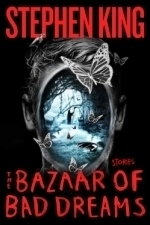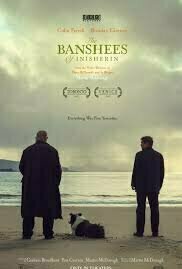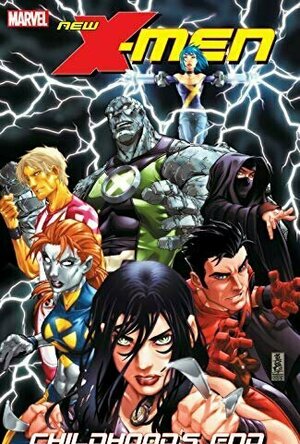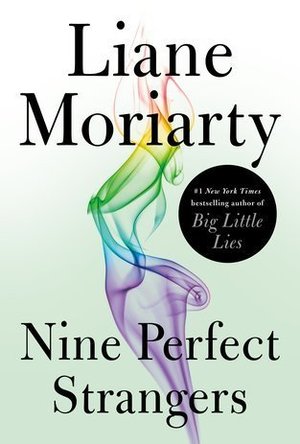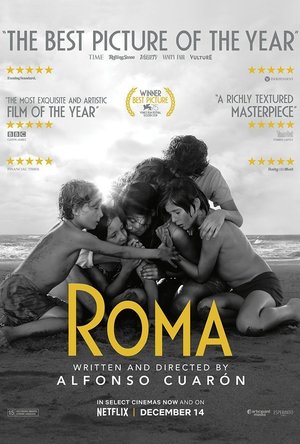Jamie (131 KP) rated The Bazaar of Bad Dreams in Books
Aug 15, 2017
On a more positive note, one of my favorite aspects of King’s writing is the incredibly dark humor that is present in much of his work. I think the addition of comedy helps to break some of the tension from the otherwise horrific stories and I found myself chuckling several times while reading. The anecdotes before each story were fun to read and gave some interesting insight into King’s writing processes and the things that inspire him. These personal little notes were one of the major highlights of the collection since it serves as a way of connecting the reader to the writer. King to me just has a likable voice and I enjoy reading or listening to his talks.
My favorite story out of the entire collection was no contest, there was one story that stood out to me more than the others: Under the Weather. The short is just so well paced and filled me with so much dread from start to finish that I was in awe. It really showcased King’s mastery of the technical aspects of writing and how to build tension and suspense. Other notable stories were Mile 81, Batman and Robin Have an Altercation, The Dune, Under the Weather, The Little Green God of Agony, and Summer Thunder.
Despite all of my praise, it was difficult for me to decide how I wanted to rate this collection. The stories are decent, there are even a few really good ones in the collection, but overall it was nowhere near King’s best. When I closed the book I felt relieved to finally be done, which is not the best feeling to have after finishing a book. Many of the stories seemed to be either love or hate to me and so it was really a mixed bag. Even after I’d finish a story I enjoyed and put the book down for the night, I’d find that I had no motivation to pick the book back up again the next day. Because of this I ended up taking a full month to read this collection which is slower than my average. I had actually been thinking of rating this book lower but the strong final stories drove me to push my rating up a little higher.

Cartoon Network App
Entertainment, Lifestyle and Stickers
App
Whether you want to catch up on the latest full episodes (available the day after they air!) or take...

The Economist GBR
News and Business
App
The Economist Global Business Review is a new bilingual digital app from the editors of The...

Triathlon Trainer
Sports and Health & Fitness
App
-------------Special Price: 30% Off-----------------(If you are looking to complete a shorter...
BankofMarquis (1832 KP) rated The Banshees of Inisherin (2022) in Movies
Jan 13, 2023
15 years later, McDonagh does it again with THE BANSHEES OF INISHERIN.
Set in the 1920s in the fictional Island of Inisherin (off the coast of Ireland), BANSHEES reunites Writer/Director McDonagh with his two stars of the previous film - Brendan Gleeson (“Mad Eye” Mooney in the Harry Potter films) and Colin Farrell (unrecognizable as The Penguin in the recent BATMAN movie) - and the resultant character study is just as interesting and intriguing to watch in a setting just as interesting…and breath-takingly beautifully bleak.
McDonagh, more than likely, will be nominated (as he was with IN BRUGES) for his screenplay for this film - it IS Oscar worthy - but for me, he was better as the Director of this character study, pointing his camera with a keen eye and surety in what he wanted to show all the while letting the performers and the countryside tell the story.
Both lead performers (and the Supporting Actors) are perfectly cast. Farrell, as Padraic,is the protagonist - a simple man who just wants to be able to go to the pub everyday and have conversation with his best friend, Colm (Gleeson) who, one day, proclaims that he no longer wants to be friends with Padraic. Padraic, then spends the rest of the film trying to understand why this is so, what happened and what he can do to make amends.
Farrell will earn an Oscar nomination for his portrayal of the simple (but not simple-minded) Padraic who is having a hard time grappling with deeper issues seeping into his simple life. Farrell has really grown into a fine actor and he (at this point in time) has to be considered on of the FrontRunners for the Best Actor Oscar for his work in this film.
Just as good is Gleeson as Colm, the recalcitrant, stoic friend who stubbornly wants nothing to do with Padraic. In lesser hands, this character could have come off as “one-note” being, simply, an immovable object in the way of Padraic’s irresistible force, but in Gleeson’s skilled hands, Colm has layers and depth that seep out through the cracks of his stoney facade. I would not be surprised if Gleeson, too, is nominated for an Oscar (probably in the Supporting category).
These two are capably assisted by Kerry Condon (Stacey Ehrmantraut in BETTER CAUL SAUL) and Barry Keoghn (DUNKIRK) as Padraic’s sister and a friend of both Padraic and Colm (respectively). Both bring their “A” games to this film and truly show the meaning of the term “Supporting” in “Supporting Performance”.
Special mention needs to be made for the Cinematography of Ben Davis (GUARDIANS OF THE GALAXY) who brings beauty to the bleak, stark and harsh Irish countryside. This cinematography is, actually, another character of this piece and brings strong emotional support to the performances.
Not the fastest moving film you will ever see, THE BANSHEES OF INISHERIN is an interesting, intriguing - and beautifully shot - character study that will stay with you long after the film ends.
Letter Grade: A-
8 Stars (out of 10) and you can take that to the Bank(ofMarquis)

iDrated Water
Health & Fitness and Lifestyle
App
Featured worldwide including... Cosmopolitan, Glamour, Asos, Stylist, The Mail on Sunday,...
Joe Goodhart (27 KP) rated New X-Men: Childhood's End, Volume 1 in Books
Nov 30, 2020
..which brings my attention backwards, to 2006's NEW X-MEN: CHILDHOOD'S END.
I skipped out when the series first launched as NEW X-MEN: ACADEMY X. It seemed generic and the stories I flipped through did nothing to grab my attention. It wasn't until the rebranding of the series as NEW X-MEN: CHILDHOOD'S END, with Craig Kyle and Christopher Yost taking over the writing as well providng a new revolving artist lineup.
While this first volume was a bit hard to follow, what with the jumping back forth with flashbacks and time rollbacks, but the second reading made more sense. I don't know that I would have written it out that way, but then again, it wasn't my book.
One of the things that really clicked for me was having Kyle and Yost on board. As the creators of Laura Kinney (X-23), I thought her introduction to the team would be handled well. Let's just say I was left feeling quite good, enough so that I will be reading the remaining volumes in the series.
The way she is written is as a lost girl. Logan wants her on the team, as it will help her to integrate, learn more about non-violent interaction. She is resistant at first mention, but then she comes around. However, despite her joining the New X-Men class, it is not an easy ride as she is withdrawn, though we do see the first sparks of interest on her part in Hellion. Unfortunately, her fellow classmates don't make it that easy for her to want to interaction, opting to go the route that most new students are treated in RL. So yeah, makes sense.
The only thing I didn't really like was Laura was referred to as either X-23 or Laura X, instead of Laura Kinney. I am not sure why that was, but as much I found it disappointing, it did not detract the story any. More often that not, when it came up in a panel, I would just read as "Laura" (minus the "X") or Laura Kinney. Easy fix, eh?
The art chores of the first volume went to Mark Brooks. I usually like his art, but sometimes (like in X-FORCE) he would give Laura a bust line not befitting a character like that. Here, though, everything was perfect, aiding in setting the darker "M-Day" and post-"M-Day" mood. I quite liked it, suited the content 100%.
Last thing I want to add is this: WOW! EMMA FROST IS A MEGA SALTY BITCH! Her treatment of Laura was totally uncalled for and way off base. Heck, she used to be the White Queen, yet she is now an X-Men. Everyone deserves a chance, even a former assassin (well, in fairness, it was how she was raised/trained, she really knew nothing else).
So, and including bitchy Emma, I give X-MEN: CHILDHOOD'S END VOL ! 5 out 5 SNIKTs! Not bad! Now, onto Volume Two...
Midge (525 KP) rated Nine Perfect Strangers in Books
Jan 5, 2019
Nine people, of all ages, have booked into a health resort called Tranquillum House for a break. They are all going there for their own reasons. Located in Australia, Tranquillum House is a "boutique health and wellness resort" where a new you awaits. The resort is owned and run by Masha, a ruthlessly ambitious Russian. She is a former company executive who, ten years prior, experienced a near-death experience leading to her to choose a different life direction. However, Masha, assisted by her loyal staff members, Yao and Delilah, has a dark and sinister agenda for her nine new customers, although she is driven by good intentions.
The guests get a lot more than they bargained for with their ten-day cleansing programme of diet, light exercise, therapy and spa treatments. First, we are introduced to Frances, a romance novel writer whose career has taken a nosedive. Then Tony, who is divorced and has recently lost his much-loved dog has booked into Tranquillum House for weight loss. Lars, a divorce lawyer, is a regular guest of health resorts. Ben and his wife Jessica have won millions on the lottery, but their marriage is in jeopardy. The Marconi family, Napoleon, a teacher, his wife, Heather and their daughter Zoe have booked in for stress relief and appear to be weighed down by grief and guilt. Carmel, a divorced mum of four girls, has lost her husband to a younger woman and is troubled by her very low self-esteem.
All of the characters are wonderfully developed and are all so hopeful for their stay at the health resort. Their interactions with each other are fabulously entertaining, particularly those including my two favourites, Frances and Yao. Frances, for me, was hilarious and I loved the portrayal of the obsessive and infatuated Yao. Masha, exotic, charismatic and narcissistic, has plans for all of the guests that she truly believes will transform their lives and will reward her a glorious and promising future.
Humour and wit in are both in abundance in this novel where people with little in common with each other come together in circumstances where they form unexpected bonds with one another. There are, however, some terribly sad experiences for some of them, including Masha, that eventually became apparent by the end. I did find the pacing a little slow at times but it picked up during a very suspenseful second half of the novel. I couldn't really guess how this book would end but I absolutely loved the way the story was concluded.
Whilst "Nine Perfect Strangers" might not be everyone's favourite novel by Liane Moriarty, including mine, (I think "Big Little Lies" is a better book), it was still a hugely enjoyable read. Overall, I would say that Liane Moriarty has created a book with engaging characters, a surprising plot and some very insightful writing, which I am extremely pleased I have read!

Kurio – App Berita Indonesia
News and Lifestyle
App
Want to read more news that is more accurate and "sane"? Kurio is the place. Enjoy completeness of...
Justin Patchett (42 KP) rated Roma (2018) in Movies
Mar 3, 2019
Since I’m in a clear minority on this film, I feel obligated to preemptively address some common criticisms. If Roma had been produced in English, presented in color and with any score, it couldn’t fix the fact that I simply dislike Roma’s genre. Sure, I’ve liked slice-of-life drama films, and modern period pieces do fine by me. Pretentious Oscar-farming arthouse flicks like this, though, never win my praise.
Roma follows Cleo, a housemaid in Mexico City. Cleo has gotten pregnant and the presumed father, Fermín, leaves her to buy cigarettes before the baby’s even born. Her employer, Sofía, is dealing with a cheating spouse. What follows is two hours of both of these women marginally helping each other with their respective situations. As slice-of-life films do.
Since it's a slice-of-life film, much of the story just basically happens. You'll remember a scene here or there that happened, even if it was ultimately insignificant. In one scene for instance, Cleo goes to confront the baby daddy, who’s at a huge martial arts class. She spectates and proves to be the only one able to perform a certain yoga pose. Which is important because it helped add another few minutes to the film.
Cleo goes into labor not long after this confrontation, but her daughter ends up being stillborn. This all happens in the midst of the Corpus Christi Massacre. What the heck was the Corpus Christi Massacre, you may ask? According to this film, it was a brutal inconvenience on Cleo’s way to the hospital after her water breaks. This actual historical event simply happens and is never addressed for one second more. You know, just like in Titanic where the shipwreck just makes things inconvenient for Rose and Jack.
The last major scene in the film comes when Sofía invites Cleo to come with her family on a trip to the beach, not as staff but to help Cleo cope with the tragedy of losing her child. While they’re there, Sofía leaves the children in Cleo’s care for two freaking minutes, and two of the kids nearly drown. Cleo, though, can’t swim, and so she stands out in the water as the kids rescue each other. And that's about as close as Roma gets to a cohesive plot. Cleo only came with them to help her grieving, which meant she could be there to be powerless while her employer’s kids save each other’s lives. Bad things happen to us, the film teaches, so that good things can coincidentally happen in our proximity.
In fact, coincidence seems to be the running theme, here. Remember the Corpus Christi Massacre? No? What if I call it “the scene where Cleo goes into labor”? Maybe that helps? Fermín briefly held Cleo at gunpoint in the middle of it. Again, mere coincidence. Just like it’s a mere coincidence that she goes into labor the same day as a massacre that killed 120 people. As coincidences do.
Roma isn’t an aggressively bad film. There are a rare few moments within Roma’s 2-hour runtime where you think, “I can see that clip showing up during a Facebook video binge,” but again: These are moments more rare than our current president ordering a rare steak. That rarity has everything to do with the fact that the movie has so few moments, at all. The rest is shots that linger too long from angles that repeat themselves all too often. It’s like Cuarón asked someone, “What does a movie like Juno need to be better?” They responded, “Nothing.” So Cuarón packed Roma with nothing.
Which brings up one of my biggest criticisms of Roma: The cinematography is bland. Cuarón shot practically the entire film on one camera, set a specific distance from the subject, and kept takes running as longer than they should have, padding out a short-film’s worth of content to feature length. It’s bland cinematography that somehow earned an Oscar for Best Cinematography.
Gravity showed us what Cuarón was capable of. Beyond bringing a seemingly authentic view of space to the big screen, Gravity offered variety. Yes, the huge collision scene in Gravity takes on the feel of a one-take scene, but even then, the camera moves with the action. And if your attention moves away from the foreground the shot, you’re able to see other important things going on. With Roma, though, your foreground is your film. Period. And to be sure, you'll be kept at arm's length from that foreground at all times, both metaphorically and cinematically.
There's a number of reasons why Roma wasn't the Best Picture, this year. Gravity proved that Roma is not Cuarón’s best film. Bo Burnham–yes, that Bo Burnham–wrote and directed a better slice-of-life film with Eighth Grade. And Roma might not even be the past year’s best black-and-white film; I dare suggest that Cold War may have been better.
To give it the credit it’s due, Roma’s cast rightly earned nominations for their performances. Yalitza Aparicio and Marina de Tavira earned Best Actress nominations for their roles, and for their part, their performances were authentic as can be. It's the least the Academy could do for having them endure Cuarón's lengthy takes.
But now that I've given it credit, I demand my time back for the scene of Fermín going Star Wars Kid meets Full Monty.
